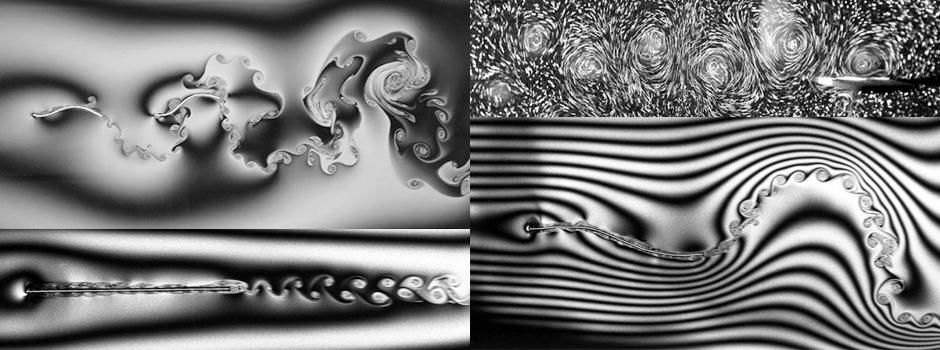Jun Zhang, a member of the Courant Institute and Professor of Physics and Mathematics at NYU Shanghai opened the institute's holiday celebration on December 4 with a talk about the experimental lab devoted to fluid dynamics, located in the lobby of the Courant Institute’s Warren Weaver Hall.
Zhang opened his remarks to great effect with some "magic." He dipped a piece of paper into water, with the equation F = ma written on it. Newton's second law (for solid dynamics) soon disappeared and the Navier-Stokes Equation, a far more complicated equation that describes fluid motion, popped up.
For almost half of Zhang's talk, the packed audience was treated to images and movies relating fluid phenomena and flow visualizations to the artworks of some of the world's most notable artists such as Leonardo da Vinci, Maurits Escher and Vincent van Gogh. After the talk, the consensus was that art and science share a similar spirit, as artists and scientists explore the world about them.

Zhang explained that the lab in the lobby, a space filled with equipment, flickering lights, mechanical noise and busy people, brings together mathematicians and researchers to tackle the field’s very challenging governing equations (N-S equations).
“With everyone under one roof, there is more cross-disciplinary collaboration. Often, lab experiments will inspire mathematical models and vice versa for a fruitful collaboration,” Zhang commented, adding “the experimentalists and the applied mathematicians can communicate and collide all the time.”
Zhang is directing a research lab at NYU Shanghai where he is pursuing his research interests including the physics of fluids, which covers biomechanics and bio-locomotion (organisms swimming, walking and flying), geophysical fluids (thermal convection, continental dynamics), solid-on-solid friction, and self-organized phenomena at different scales. The research facilities, located on ECNU’s campus, are an expansion of the program at NYU in New York.


